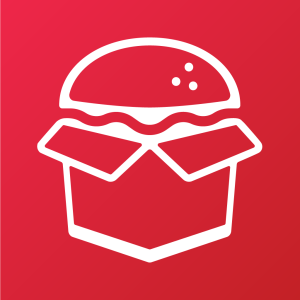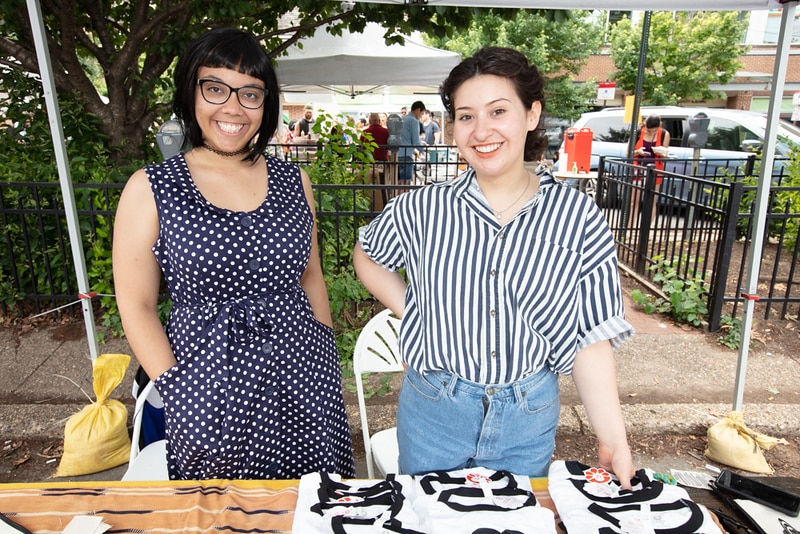The focus of this blog has always been female entrepreneurship – after all, the name of the blog is The Ladies who Launch! But at this unprecedented time of COVID-19, I am pivoting to include male founders, whose stories of how they are adapting to the “new normal” are instructive to budding entrepreneurs everywhere.
Featuring Gaurang Bham of Phoodie

Gaurang Bham was born and raised in Northeast Philadelphia to Indian immigrant parents. He was a self-described “fat kid” who loved the rich food-culture of Philadelphia (which he considers one of the greatest food cities in the United States by the way!). Checking out the best foodie spots in town has always been a favorite interest for Gaurang. He was also interested in computers and technology: after graduating from Central High School, Gaurang went on to study Software Engineering and Entrepreneurship at Drexel University.
During one of his Drexel Computer Science classes, Gaurang was assigned a group project. The scope of the project was wide-open and could be anything as long as it involved programming. Gaurang’s group decided to design an app that would use foot traffic to optimize college facilities and called it “Crowds”. After the class ended, Gaurang continued work on “Crowds”.
It was at that time that Gaurang learned that one of his favorite restaurants was struggling. Like many Philadelphia restaurants, it was family-owned and struggling to survive with razor-thin margins. Could a third-party sales processing and delivery service app such GrubHub help smaller local restaurants increase business? Gaurang discovered that Grubhub (and DoorDash and UberEats) charge such high commission and delivery rates that they are actually bleeding these independently-owned restaurants dry. Restaurants pay a commission rate based on location and density of restaurants in their area. The more competition, the higher the commission (commissions average from 15 – 25% plus an additional 10% for delivery). If a restaurant wants to stand out, it can pay even more for a sponsored listing. Without a sponsored listing, a restaurant can get lost in the crowd.
Gaurang realized that “Crowds” could be used to help drive foot traffic to restaurants. Guarang shifted its focus and renamed his app Phoodie. Phoodie uses machine learning to analyze foot traffic, sales and food inventory to identify slower times when a restaurant needs business most. It then suggests to restaurants that they offer a discount at that time, notifies app users that a discount is available and then allow customers to purchase directly from the app, coupon code applied, for pick up. Both customer and restaurant benefit: restaurants see increased sales and reduced food waste and customers get a deal.
With the current COVID-19 pandemic, most restaurants are closed for eat – in dining. If they are open at all, it is for curbside pick-up or delivery only. On the surface, it seems like an ideal situation for a third party sales app such as Phoodie. Is it? I asked Gaurang to discuss the opportunities and challenges presented by COVID-19.
What was Phoodie’s pre-pandemic business model?
Phoodie, like any food ordering app, provides a restaurant-facing and customer-facing app. We used machine learning to automate pricing at restaurants based on demand. When restaurants are slow, the app suggests lower prices to entice customers to order takeout. We charged a variable commission rate based on sales performance through our app. (We do well when we help you do well!)
How are you turning the hurdle of social distancing into an opportunity? How has your business pivoted?
For the first few weeks, I had no clue what we were going to do. Phoodie was pre-launch and pre-revenue. The Food/Drink industry has been hit arguably the hardest from the pandemic and Phoodie was based on a unique value proposition powered by sales demand at restaurants. And it was pick-up only with no option for delivery.
It seemed like there was literally nothing we could do to launch our business. But as the CEO, I felt like I had to save face and be strong for my team even though I had no idea how to move forward.
My team and I focused on building our product and helping our partner restaurants in whatever way we could – spreading the word, featuring them on our social media, and through referrals. Eventually, I reached a crossroad where I realized that Phoodie could either:
- Build the product and wait until the pandemic blows over to launch. This would be a huge risk: the post-pandemic restaurant industry might be totally different than the pre-pandemic industry. We could spend invaluable time building our product for nothing. Or we could
- Figure out a way to add a delivery option and put dynamic pricing on hold. We could simply release our app as a totally free alternative to the big name GrubHub, DoorDash and UberEats, who are continuing to charge restaurants an arm and a leg even in these extremely difficult times.
Opting for option 2, we forged a partnership with Habitat Logistics, a local delivery provider for restaurants in the Philadelphia area. We are now aiming for an early May launch with the plan of providing a totally free food takeout/delivery service in which 100% of the sale goes back to the restaurant.
We earn 0% commission, but at the end of the day, restaurants learn they can rely on us. They can increase their sales and we do a good thing for the Philly Restaurant Scene. I would call that a win-win!
How important is “thinking outside the box” to the survival and growth of your business?
I think at this point, if you are not thinking outside the box, your business is at a standstill. If you are in an industry that does not conduct most of its business online, you are back to square one for the first time since the birth of that industry. All metrics are being re-made, so now is the time to experiment.
For us, thinking outside the box is more of a “nothing to lose” situation. If we wait for the pandemic to end, our product could be obsolete. If we try to sell the service “as is”, restaurants will slam doors in our face because a discount-based app is tone-deaf in the current climate. And if we give up, all the hard work my team has spent is for nothing. Besides, what else am I going to do with all this free time?
Releasing a free food ordering platform means we make a name for ourselves and we do a good thing and make an impact on the local food scene. That is our primary goal – making an impact.
How are you connecting with your peers?
As a technical founder, I have designed my entire team’s framework around being remote-accessible. All our meetings, even pre-pandemic, are logged in a team calendar with Google Meet Conferencing Links attached so anybody can be involved. So luckily the transition to a totally remote workforce was the easiest thing about this shift.
Our team syncs up at least once a day for 30 minutes to go over what they have worked on, any issues they ran into and any questions they may have. This gives me insight into the pace in which we are moving forward and how to better-position each team member. Additionally, I have 1:1 calls with team members to go over more in-depth issues.
Prior to the pandemic, our team had a very close-knit relationship and it has been hard to find opportunities for the team to bond outside of work. We all ate lunch together at least once or twice each week and would set aside time to bond through a shared love of games (Our team is particularly competitive when it comes to Super Smash Bros.). Without a shared space to work, along with some teammates living in different time zones, opportunities for that have diminished.
That being said, I am currently trying to schedule the entire team to have a set “Happy Hour” of sorts for all of us to play games online, chat and catch-up.
How important are Mentors to you at this time?
Mentors have played an incredibly large part in both my and Phoodie’s development. I would argue that our mentors have had an even larger impact as a result of the pandemic. Things have been crazy and having mentors to bounce ideas and strategy off-of has been incredibly comforting during this pandemic.
What new learning are you planning?
The past several weeks has extended my knowledge tenfold. I had a technical co-founder who left the company earlier in the year who was responsible for our entire database and back-end architecture. With his absence, I had to become an expert in all things Amazon Web Services. So that has really been the bulk of my learning!
How important is resiliency to you?
If there is one thing that I try to impart to my team it is the value of “grit”. Things are never going to be easy in life and now, more than ever, I feel like a lot of entrepreneurs are seeing that reality up close and personal.
I was born and raised in Philadelphia and came up through the devastatingly underfunded public-school system. I am now a graduate from Drexel University with a Degree in Software Engineering, I have a startup about to launch and a corporate job lined up for the summer. The only thing that has gotten me this far is my resiliency and determination. Even getting Phoodie to where it is now was a 4-year process!
There are no shortcuts, not before the pandemic and certainly not after it. Grit means you want it even more. It means you are hungrier. And as Philadelphia Eagles Center Jason Kelce put it so eloquently, “Hungry dogs run faster”.

If you own a local restaurant that would like to be a part of Phoodie’s pilot program, please reach out! Email Gaurang at gaurang@phoodie.io.
Follow on Instagram: https://www.instagram.com/phoodie.io/.
Visit Phoodie’s website: https://www.phoodie.io/.
Like Phoodie on Facebook: https://www.facebook.com/phoodie.io/.






